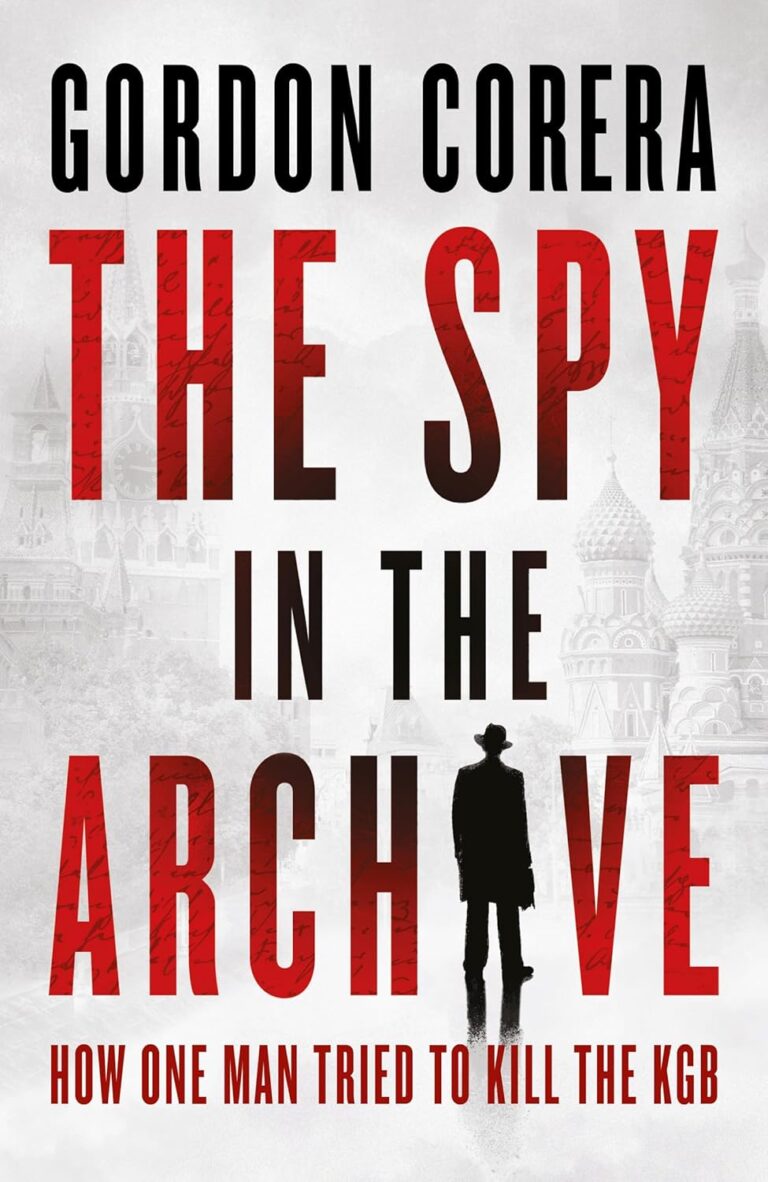After the fall of Communism, Western embassies inside the former Eastern Bloc came under siege from “walk-ins”. Almost everyone seemed to have secrets to sell about the dark heart of the Soviet experiment, and they were willing to hand them over in return for a one-way ticket to Idaho, a picket fence, and pocket money to get them by for the first decade or so.
Most were blaggers or liggers, freeloaders who knew no more about the KGB than you or I. But occasionally, the real deal walked in—and none was realer than Vasili Mitrokhin, the crotchety Russian bean-spiller who forms the focus of Gordon Corera’s fascinating The Spy in the Archive. A grey-faced, nondescript figure, he exemplified a saying among spies: the trouble with defectors is they’re defective. Like many servants who turn on their masters, Mitrokhin had been a true believer. Then he lost his faith, which left him rudderless.
Time was when he had wanted nothing more than to serve the KGB. As a young Soviet spook, he was poolside at the 1956 Melbourne Olympics during the brutal semi-final clash between the Hungarian and Soviet water polo teams, later known as the Blood in the Water match. Hungary, a Soviet satellite state pushing for independence, had been savagely suppressed a few weeks earlier. The outraged Hungarian players kicked off during the game and the Soviet swimmers hit back. The result—a 4-0 win for Hungary—yielded photos of Hungarian player Ervan Zador with a gash under his eye. It was a PR disaster for the USSR and a career-stalling gaffe for Mitrokhin, who had been heard urging his team to punch harder.
Disgruntled, he found himself stamped as “not suitable for operational work” and consigned to the archives in the KGB’s Lubyanka building in Moscow. There he brooded until the 1970s when it was decided the foreign service section would move to a new building outside the city. Mitrokhin was tasked with sifting KGB files going back decades to decide what could be thrown away and what should be kept. What he read sickened him so much, he grew to loathe the organisation he worked for, and to ponder how he might best bring it to its knees.
The answer he came up with was a labour of hate. For years, he secretly jotted tiny notes about the contents of the files, which he concealed in his shoes. At weekends, when his wife and son were asleep, he typed the notes up. In this precarious crusade he was helped by the fact he knew how the KGB worked. He knew, for example, that they investigated anyone in the country seen to buy a lot of typewriter ribbons. What might they be writing? So Mitrokhin ingeniously recycled his ribbons, using concentrated fruit juice instead of ordinary ink.
In his telling of Mitrokhin’s extraordinary story, Corera sometimes adopts a thrillerish style that feels overdone. The dramatic swing of his subtitle gives a flavour. Perhaps he worried that his tale of a browned-off archivist needed gussying up. But the mundanity is central to the story—and to its Le Carré-esque appeal. It was because Mitrokhin was such a drab character that he passed unnoticed. Perhaps it was also why the CIA rejected his overtures when he entered the US embassy in Vilnius, leaving us Brits, pleasingly, to land this fish for ourselves.
Running to thousands of pages, the Mitrokhin Archive has proved a trove for understanding the sordid workings of the Soviet machine. For example, after the ballet dancer Rudolf Nureyev defected, there was a plan, which was never carried out, to break his legs. In the 1960s, the KGB ran a disinformation campaign designed to sow dissent among US civil rights campaigners. The Archive also revealed the activities of several Soviet spies, such as Melita Norwood, who for decades passed British atomic secrets to the Kremlin.
As for Mitrokhin, who settled beside the Thames in Teddington, he seems to have remained dyspeptic to the end. He always resented the Americans for having turned him away in Vilnius. He also fell out with Prof. Christopher Andrew, his distinguished co-author on the two edited volumes of his work, which were published in 1999 and 2005. “Only a tiny minority of difficult people are heroes,” Prof. Andrew commented. “But a surprisingly large proportion of heroes are really difficult people. Mitrokhin is a really difficult person. But he is also a hero.”

